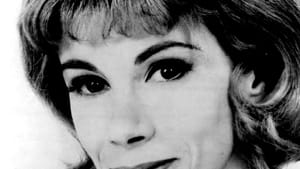Stay in the Loop
BSR publishes on a weekly schedule, with an email newsletter every Wednesday and Thursday morning. There’s no paywall, and subscribing is always free.
The person and the persona
Remembering Joan Rivers (three)

I grew up with Joan Rivers. There she’d be on The Merv Griffin Show talking about her husband Edgar as if he was a homely guy sitting at home in a pair of flannel pajamas waiting for her to give his life meaning. In those early days, Joan was always saying Edgar this and Edgar that, enough to make my boy’s mind wonder why she always made out Edgar to be so ugly and unexciting. Here she was, the undisputed Queen of Comedy — presumably she could have any man in the world — and yet the only thing she wanted when it came to love was Edgar, who by all accounts was the human version of a comfortable but ratty old shoe.
Of course, in those days I was far too young to understand the comedy of self-deprecation and put-down. All I knew is that on TV Joan Rivers didn’t look half bad. I loved her blow-dried blond hair and sparkling white teeth, a far cry from, say, the brunette Carol Burnett with her undistinguished, Vivian Vance housewife locks. Hollywood blondes like Kim Novak, Barbara Nichols, and Mamie Van Doren for me in those days were always special, although my adolescent love for Lauren Bacall came out one day when, watching Merv Griffin again with Mom, I blurted out, “I love Lauren Bacall. She is so masculine!”
“She’s what?” my mother asked, sitting straighter on the sofa. “What did you say?”
While Joan certainly had gutsy attributes like Bacall, she was certainly not like all those early male comedians — from Don Rickles to the once hilarious Richard Pryor — who seemed to fade into unfunny obscurity long before their deaths. Joan seemed to know that living life is often hard work and that being a celebrity is no insulation against life’s slings and arrows. People may treat you like a goddess onstage, but in your personal life you are just like everybody else: a vulnerable human being.
Lies and betrayal
In an interview with a psychologist, she confesses that the life pain she’s struggled with most has to do with feelings of personal betrayal.
Her husband’s suicide — secretly well planned, but a shock to her — was a betrayal. In the interview, she says she still hasn’t gotten over her anger with Edgar for this act of duplicity. She explains how Edgar made good-bye videotapes to family members, and then, before he went off to kill himself, he told Melissa, their daughter, that he was only going away for a night and that he would see her the next day.
It was a lie, Joan tells the psychologist. He told my daughter a lie, and now I am worried for her. She will grow up thinking that every man is a liar. And when he died he left me with a fabulous mansion, but I was alone with no show and no contract, and I was miserable. I wanted to die, too, she said.
But if anybody knows Joan Rivers, it is Melissa. Melissa became the new Edgar, the caretaker, the tower of strength behind the scenes. And Joan, the talented perfectionist, was undoubtedly impossible to live with. “Imagine being under her scrutiny all the time,” a friend of mine commented a day after Rivers’s death. “Imagine the pressure and stress of that.”
Presenting a perfect face
When I first set out to write this piece, my idea was to expound on Joan’s addiction to plastic surgery. I somehow equated her plastic surgery obsession to her belief that in life there’s only the here and now. As she told the psychologist, she didn’t believe in an afterlife — “This is it!” she insisted (with theological certainty), which meant of course that she had to make “this” absolutely the best world possible — at any cost, but if that didn’t work (those unavoidable human betrayals again), she might be tempted to end it all herself.
But there’s also this: Joan was like the jester whose job it was to keep the royal court entertained, regardless of how or what she was feeling inside. The job that she had to do — conquering feelings of personal sadness so that they wouldn’t show onstage — meant that she had to continually perfect her face because that face had become the mask of comedy itself.
While there was a lot of rage and rawness in her late comedy routines — for many, Joan went into cesspool realms — that anger, I think, was always fueled by love, as well as a sense of disappointment, in life and in her perception that there’s no redemption anywhere, even in the act of comedy itself.
How can anyone not get angry when, as Peggy Lee once sang, is that all there is?
For a remembrance by Stacia Friedman, click here.
For a remembrance by Susan Beth Lehman, click here.
Sign up for our newsletter
All of the week's new articles, all in one place. Sign up for the free weekly BSR newsletters, and don't miss a conversation.

 Thom Nickels
Thom Nickels